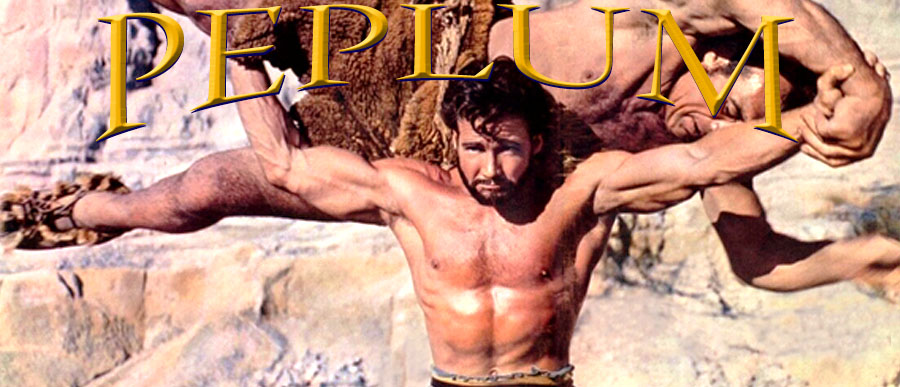Kirk Morris as Maciste in TRIUMPH OF MACISTE (1961)
I'm currently reading a book on the Maciste movies of the silent era. It's meticulously researched. But looking at the index I don't see any mention of the resurgence of the Maciste character in the 1960s. The Maciste character was so popular back then that the actor who played him in CABIRIA (1914), Bartolomeo Pagano, changed his name to Maciste. He made dozens of Maciste movies but most of them were set in contemporary times, not in the distant past. Aside from a couple of movies, most of the Maciste movies were not PEPLUM at all. And yet the character became famous, later on, as a major character of PEPLUM movies. From what I've read, the author is fixated with CABIRIA and Maciste having influenced Federico Fellini and his movies. In fact, the author starts by writing about Fellini and Maciste in the Acknowlegments chapter. From what I can tell, no mention of any PEPLUM movies of the 1960s with Maciste (unless the author didn't index it). It's very odd. How can someone write a book on the influence of Maciste on Italian culture and not mention the popular Maciste movies of the Golden Era. Again, not respect for the genre.
Bartolomeo Pagano in MARVELLOUS MACISTE (1915). This was the first Maciste movie made after CABIRIA. It's set in modern times, not in the past.



2 comments:
I'm trying to read that book as well; it's a bit of a slog. From skimming some of the chapters, the author does make passing mention of the character's revival in the '60s, but offers no insight into the later films, no comparison of the themes and cultures of the two eras, nothing more substantial than "oh, by the way, the character was brought back for a series of films in the 1960s".
Exactly. How difficult would it have been for the author to just acknowledge those movies, as an example of the old Maciste movies' influence, in one paragraph, one page or something. It's very odd. The MACISTE movies of the 1960s were popular.
Post a Comment